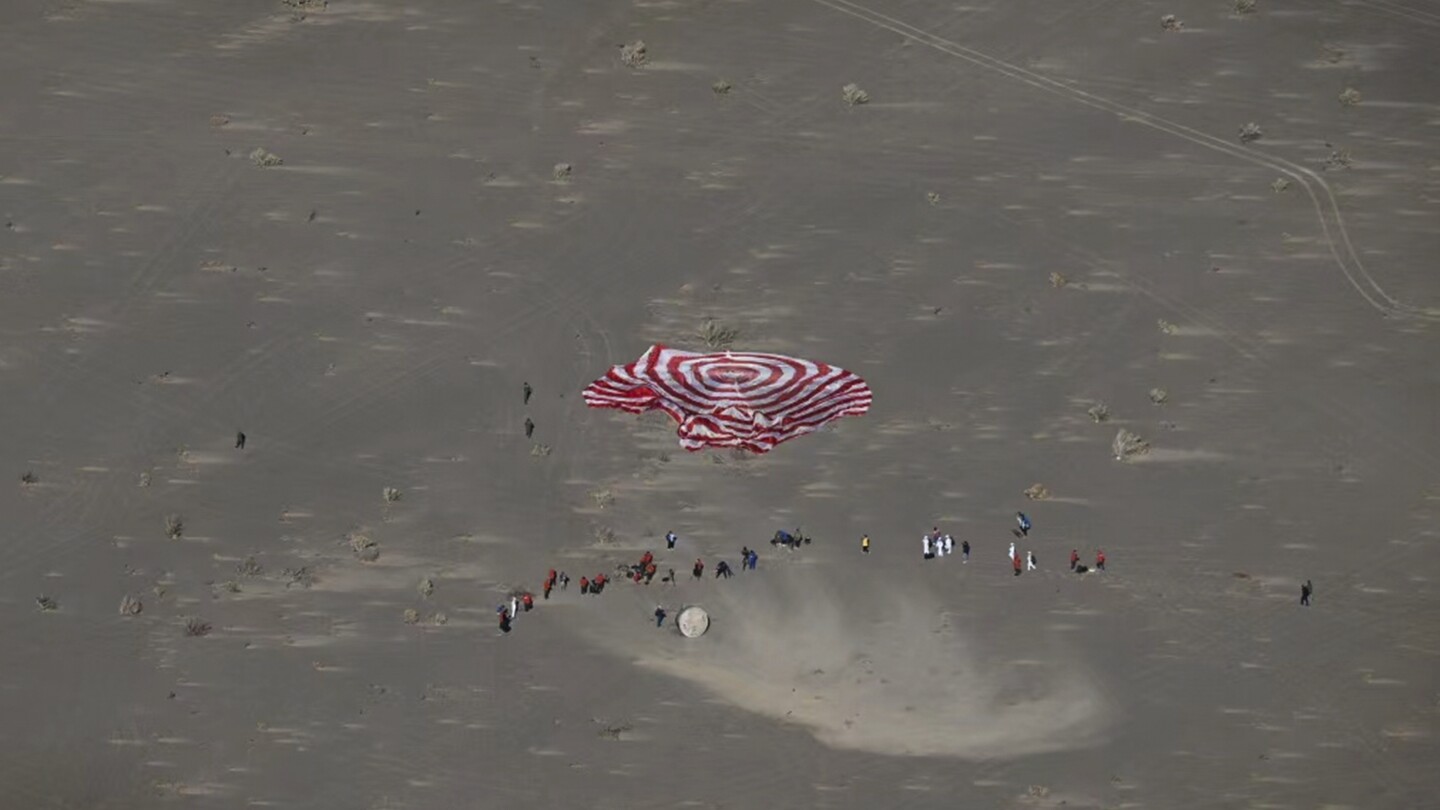BEIJING (AP) — China’s Shenzhou-17 spacecraft returned to Earth Tuesday, carrying three astronauts who have completed a six-month mission aboard the country’s orbiting space station.
The three, Tang Hongbo, Tang Shengjie and Jiang Xinlin, landed at the Dongfeng site in north China’s Inner Mongolia Autonomous Region in the Gobi desert shortly before 6:00 p.m. (1000 GMT). It comes roughly four days after the Shenzhou-18 mission docked with the station with their three-member replacement crew onboard.
China built its own space station after being excluded from the International Space Station, largely because of U.S. concerns over the Chinese military’s total control of the space program amid a sharpening competition in technology between the two geopolitical rivals. This year, the Chinese station is slated for two cargo spacecraft missions and two manned spaceflight missions.
China’s ambitious space program aims to put astronauts on the moon by 2030, as well as bring back samples from Mars around the same year and launch three lunar probe missions over the next four years.
The new crew is made up of Commander Ye Guangfu, 43, a veteran astronaut who took part in the Shenzhou-13 mission in 2021, and fighter pilots Li Cong, 34, and Li Guangsu, 36, who are spaceflight rookies.
They will spend about six months on the three modules of the space station, the Tiangong, which can accommodate up to six astronauts at a time. During their stay, they will conduct scientific tests, install space debris protection equipment, carry out payload experiments, and beam science classes to students on Earth.
China has also said that it eventually plans to offer access to its space station to foreign astronauts and space tourists. With the ISS nearing the end of its useful life, China could in future remain the only country or corporation to maintain a crewed station in orbit.
China conducted its first crewed space mission in 2003, becoming the third country after the former Soviet Union and the U.S. to put a person into space using its own resources. Tiangong was launched in 2021 and completed 18 months later.
The U.S. space program is believed to still hold a significant edge over China’s due to its spending, supply chains and capabilities. However, China has broken out in some areas, bringing samples back from the lunar surface for the first time in decades and landing a rover on the less explored far side of the moon.
The U.S. aims to put a crew back on the lunar surface by the end of 2025 as part of a renewed commitment to crewed missions, aided by private sector players such as SpaceX and Blue Origin.

